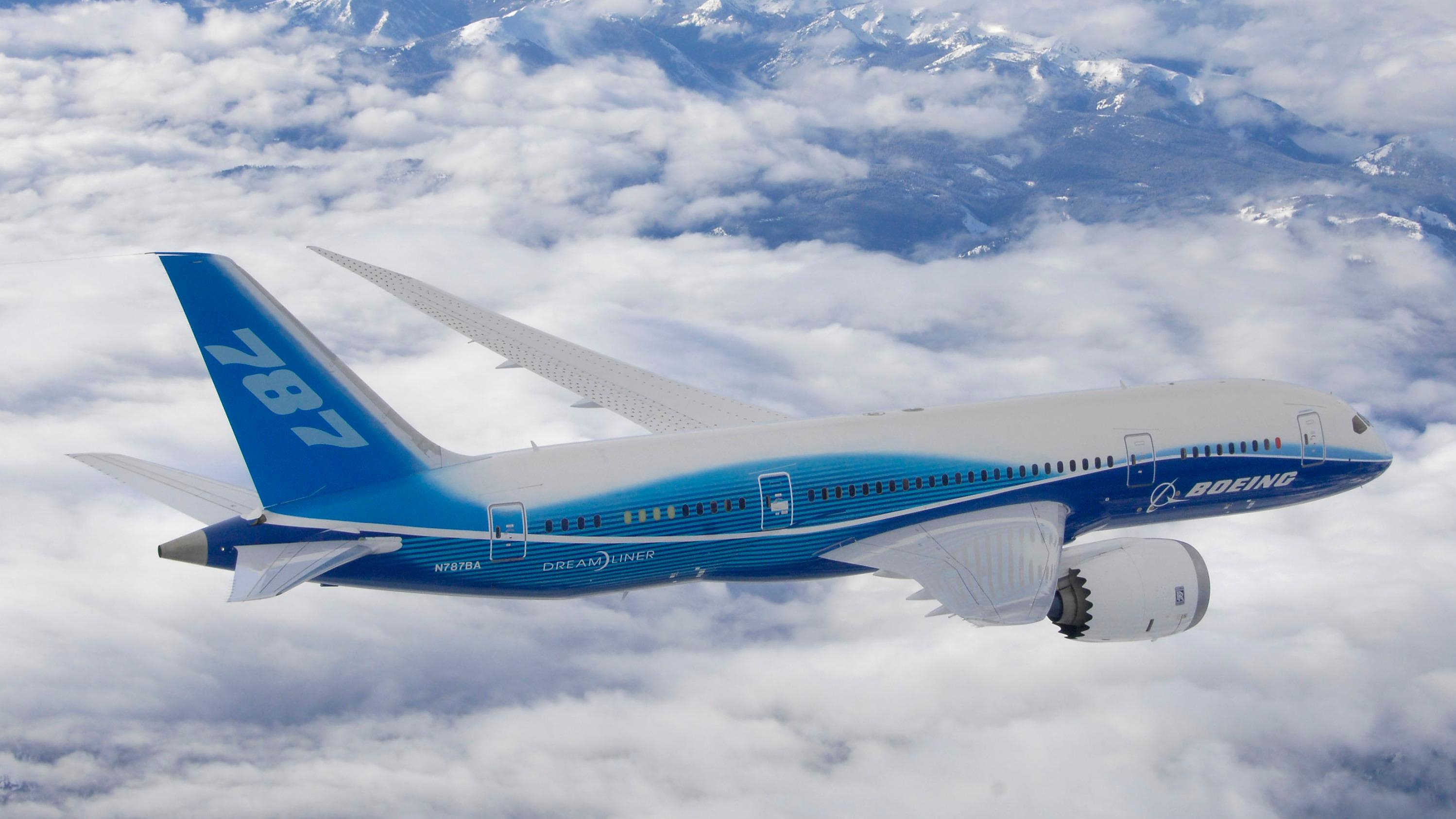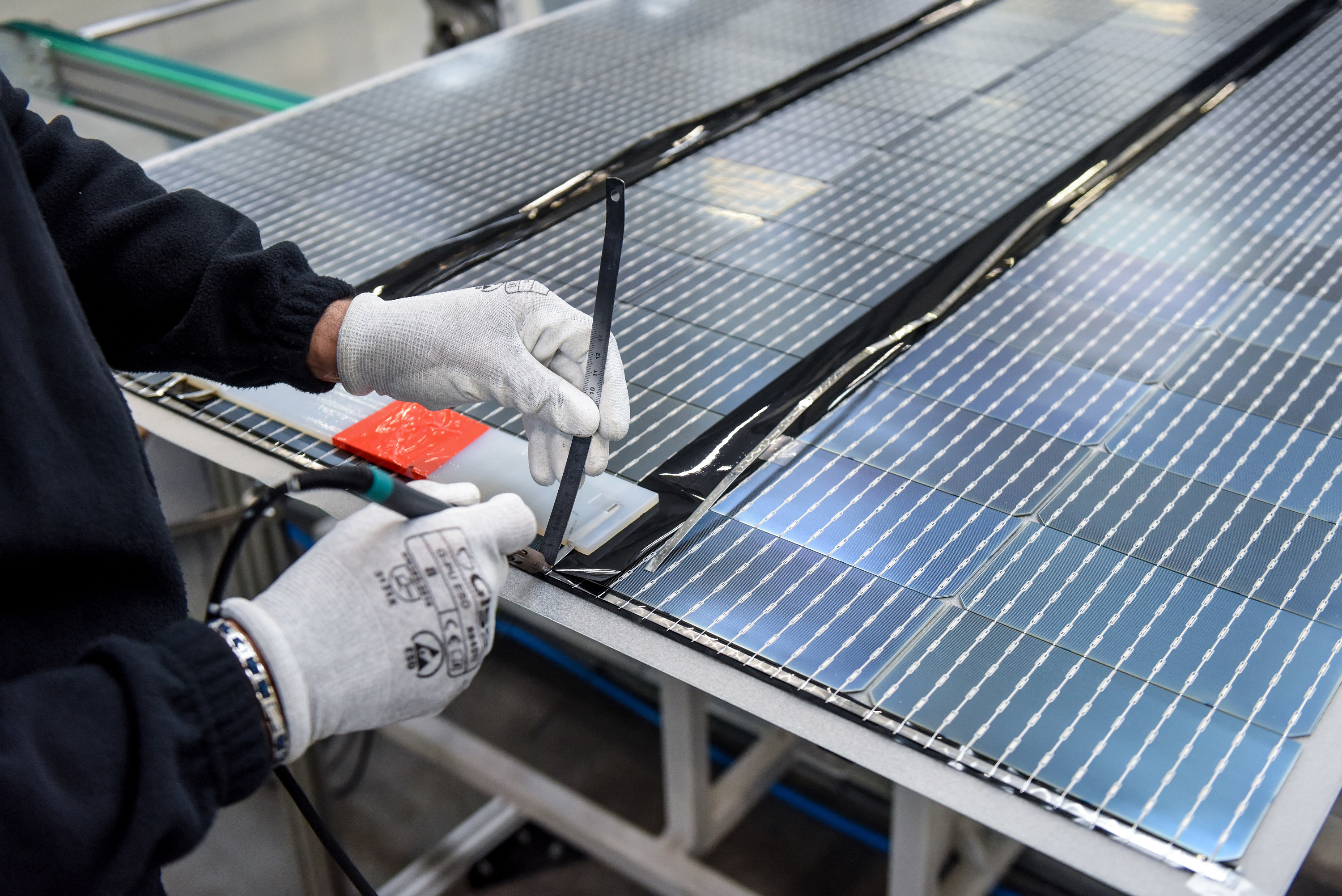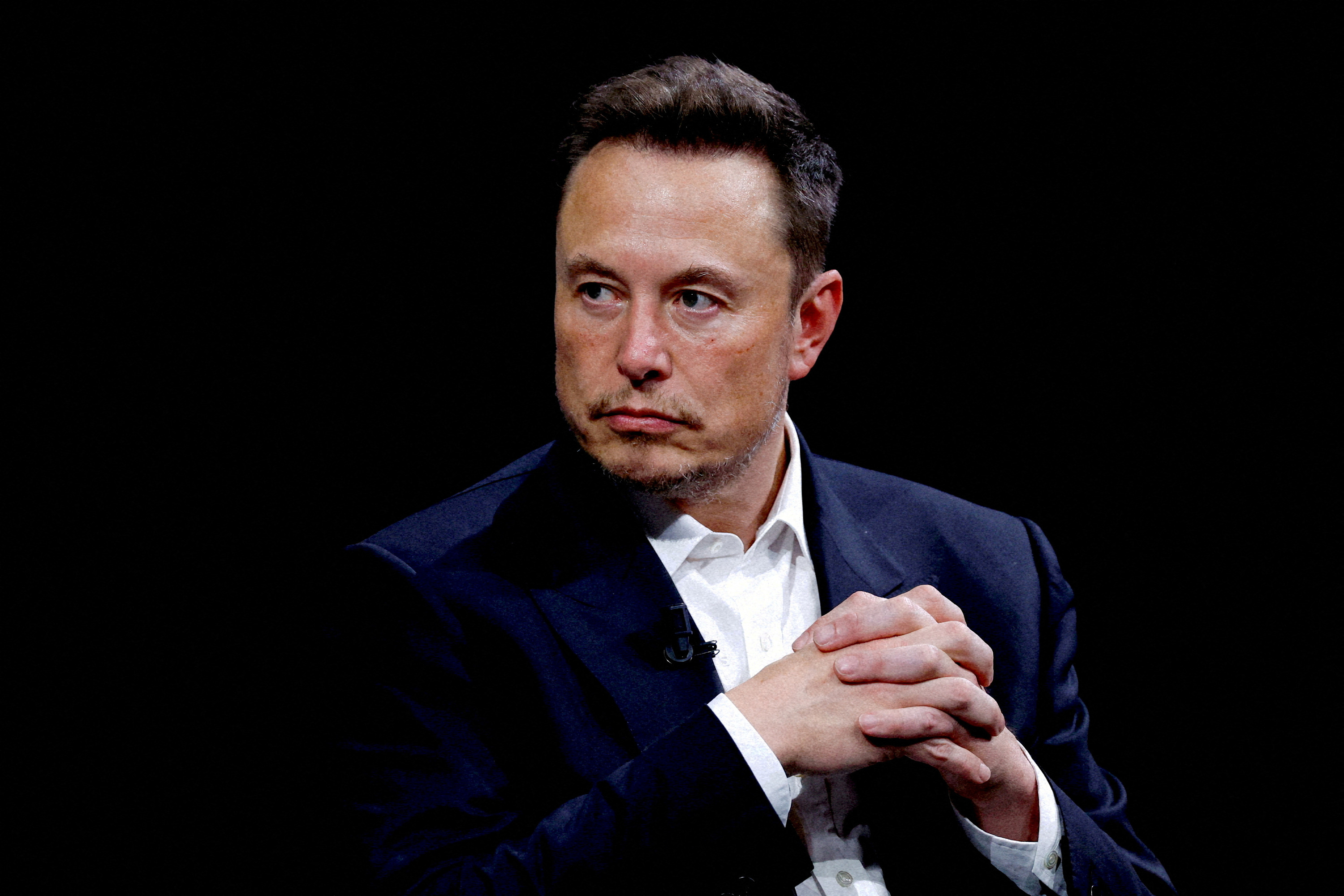Until now, the debate about the framework agreement was dominated by the fundamental critics and the Cautious. The fundamental critics – above all, the SVP – reject any agreement with the EU. The Cautious – all the rest of the Federal government parties – say at best tentative "Yes, but" to the present draft Treaty.
But now a high-profile group of Europe friends goes on the Offensive. You want the agreement not only to swiftly sign it; you "congratulate" the Federal Council and its sub-distributors, even to the outcome of the negotiations. The draft Agreement was balanced and "in the interest of Switzerland," don't be renegotiations "goal-oriented", the group writes in a position paper. On ten pages, you will break several taboos of Swiss politics. Among other things, they argued that Switzerland could do with the framework agreement, "first steps and experiences" "for more pragmatic integration" in Europe.
Behind the provocative paper, the Association "Switzerland in Europe", an Association of around 200 professors, diplomats, and Intellectuals. Was founded the grouping in 2014. Your President of the Emeritus Professor Thomas Cottier, one of the most distinguished European and international law of Switzerland. The honorary President is the former top diplomat Benedikt von Tscharner, the position of the paper, the Old-state Secretary Jean-Daniel Gerber has been involved.
these are your core arguments:
1. The opponents of the agreement have to warn an outdated concept of Sovereignty
Many critics of the framework agreement, the restricted would self-determination and autonomy of Switzerland. Those who thus argue, have a concept of Sovereignty from the Second world war, criticised the "Association of Switzerland in Europe". In today's world, sovereignty is never absolute, but divided – the authors speak of "cooperative sovereignty". Climate change, Migration, market access and the regulation of competition – all of these problems could not be single-handedly solved. Therefore, you should understand sovereignty today formally, but must always ask: "How can be perceived the influence in the shaping of the own living conditions at the best and most effective?" The Europe friends are calling on the Swiss to rethink the traditional concept of Sovereignty is critical. So far, the debate about the framework agreement is limited but, unfortunately, only "phrases and Slogans".
2. The Swiss should understand what is shared sovereignty
sovereignty is also within Switzerland "is not static, but evolves in time". The show the founding of modern Switzerland in 1848. At that time, the cantons have ceded part of their sovereignty to the Federal level of government. Still, the cantons could help to shape the policy continues to be crucial, the authors write. Exactly this intra-Swiss role distribution between the cantons and the Federal government is the best example for "a cooperative or shared sovereignty".
3. Without the agreement, Switzerland is definitely stronger foreign
The pressure of EU rules "autonomously" to understand, going to Switzerland is becoming bigger and bigger, warn the authors. Many international companies would have to keep anyway to the EU regulation, without that Switzerland had an influence. Thanks to the framework agreement, Switzerland can join the conversation now for the first time in the development of new EU Law. So you'll be in the position, your interests in the EU. The controversial conclusion of the authors: If Switzerland rejects the agreement, deterioration of your sovereignty – at least if she is honest enough to measure the sovereignty to the effective use of influence and self-determination, and not on formal criteria. In short: "Switzerland is determined without agreement, de facto, more foreign."
4. A " no " to the framework agreement is dangerous
The authors warn that the framework agreement. Because that would mean that disputes between the EU and Switzerland would continue to be resolved in a legal arbitration process, but political. Switzerland seats in political battles with Brussels on the shorter lever, you have to know, and many times painful: the dispute over the holding companies, the automatic exchange of information or in the case of the exchange of equivalence. "Switzerland is exposed to any of these measures largely powerless", the authors warn. Because she was from the EU market than the EU from the Swiss market, it had little ways to defend themselves against demonstrations of Power.
5. The agreement is a test run for further steps towards integration in the EU
in 1992, the former Federal councillor Adolf Ogi called the European economic area (EEA) a "training camp for the EU". As far as the "Union, Switzerland is not in Europe" today. But she is not afraid to describe the framework agreement "as a modest first step in the institutional integration" of the EU. With the framework agreements, Switzerland can now make the "first steps and experiences" in terms of possible "further pragmatic steps towards integration". Such integration steps, the Europe friends convinced, be "in the interest of the country and the welfare of its resident population". (Editorial Tamedia)
Created: 22.02.2019, 16:00 clock

 Rishi Sunak wants a tobacco-free UK
Rishi Sunak wants a tobacco-free UK In Africa, the number of millionaires will boom over the next ten years
In Africa, the number of millionaires will boom over the next ten years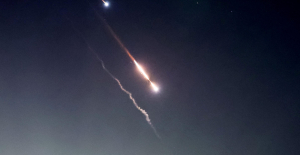 Iran's attack on Israel: these false, misleading images spreading on social networks
Iran's attack on Israel: these false, misleading images spreading on social networks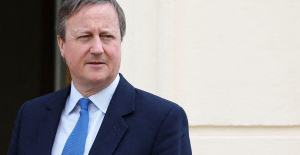 Iran-Israel: David Cameron wants the G7 to impose “coordinated sanctions” on Iran
Iran-Israel: David Cameron wants the G7 to impose “coordinated sanctions” on Iran New generation mosquito nets prove much more effective against malaria
New generation mosquito nets prove much more effective against malaria Covid-19: everything you need to know about the new vaccination campaign which is starting
Covid-19: everything you need to know about the new vaccination campaign which is starting The best laptops of the moment boast artificial intelligence
The best laptops of the moment boast artificial intelligence Amazon invests 700 million in robotizing its warehouses in Europe
Amazon invests 700 million in robotizing its warehouses in Europe Switch or signaling breakdown, operating incident or catenaries... Do you speak the language of RATP and SNCF?
Switch or signaling breakdown, operating incident or catenaries... Do you speak the language of RATP and SNCF? Transport in Île-de-France: operators are pulling out all the stops on passenger information before the Olympics
Transport in Île-de-France: operators are pulling out all the stops on passenger information before the Olympics Radio audiences: France Inter remains firmly in the lead, Europe 1 continues its rise
Radio audiences: France Inter remains firmly in the lead, Europe 1 continues its rise Russian cyberattacks pose a global “threat”, Google warns
Russian cyberattacks pose a global “threat”, Google warns Goldorak 'has never lived so much as now'
Goldorak 'has never lived so much as now' Jean-Claude Grumberg on the paths of childhood
Jean-Claude Grumberg on the paths of childhood The Aix-en-Provence festival scales back to restore its finances
The Aix-en-Provence festival scales back to restore its finances Bruno Vandelli: one year suspended sentence required against the choreographer for corruption of a minor
Bruno Vandelli: one year suspended sentence required against the choreographer for corruption of a minor Skoda Kodiaq 2024: a 'beast' plug-in hybrid SUV
Skoda Kodiaq 2024: a 'beast' plug-in hybrid SUV Tesla launches a new Model Y with 600 km of autonomy at a "more accessible price"
Tesla launches a new Model Y with 600 km of autonomy at a "more accessible price" The 10 best-selling cars in March 2024 in Spain: sales fall due to Easter
The 10 best-selling cars in March 2024 in Spain: sales fall due to Easter A private jet company buys more than 100 flying cars
A private jet company buys more than 100 flying cars This is how housing prices have changed in Spain in the last decade
This is how housing prices have changed in Spain in the last decade The home mortgage firm drops 10% in January and interest soars to 3.46%
The home mortgage firm drops 10% in January and interest soars to 3.46% The jewel of the Rocío de Nagüeles urbanization: a dream villa in Marbella
The jewel of the Rocío de Nagüeles urbanization: a dream villa in Marbella Rental prices grow by 7.3% in February: where does it go up and where does it go down?
Rental prices grow by 7.3% in February: where does it go up and where does it go down? Europeans: the schedule of debates to follow between now and June 9
Europeans: the schedule of debates to follow between now and June 9 Europeans: “In France, there is a left and there is a right,” assures Bellamy
Europeans: “In France, there is a left and there is a right,” assures Bellamy During the night of the economy, the right points out the budgetary flaws of the macronie
During the night of the economy, the right points out the budgetary flaws of the macronie Europeans: Glucksmann denounces “Emmanuel Macron’s failure” in the face of Bardella’s success
Europeans: Glucksmann denounces “Emmanuel Macron’s failure” in the face of Bardella’s success These French cities that will boycott the World Cup in Qatar
These French cities that will boycott the World Cup in Qatar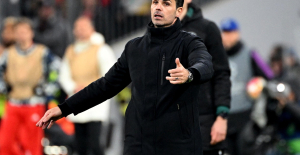 Champions League: “It’s painful, but we have to learn,” says Arteta
Champions League: “It’s painful, but we have to learn,” says Arteta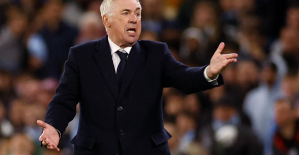 Champions League: “Madrid never dies”, says Ancelotti
Champions League: “Madrid never dies”, says Ancelotti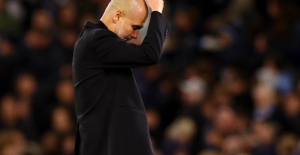 Champions League: Manchester City played “exceptionally”, according to Guardiola
Champions League: Manchester City played “exceptionally”, according to Guardiola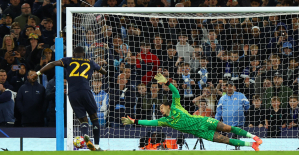 Champions League: video summary of the Manchester City-Real Madrid clash
Champions League: video summary of the Manchester City-Real Madrid clash





